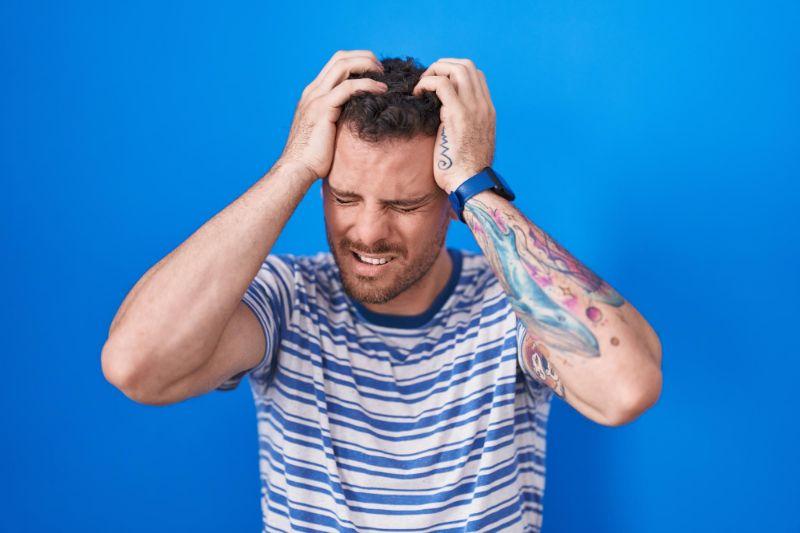The effects of stress on hair

Stress is our body’s natural reaction to a difficult situation or stressful event. However, prolonged exposure to stress can have negative effects on our bodies, including our hair health . In this article, we’ll look at the effects of stress on hair and what you can do to minimize those effects.
The effects of stress on hair

How does stress affect hair?
Stress can affect hair in different ways, including:
-
Hair loss
Stress can lead to hair loss, which is also known as alopecia. When you are stressed, your body produces stress hormones such as cortisol and adrenaline. Prolonged exposure to these hormones can disrupt the hair growth cycle and lead to hair loss.
-
Dryness of the scalp
Stress can also lead to dry scalp. When you’re stressed, your body produces fewer natural oils to moisturize your skin and hair. This can make your scalp dry and irritated, which can lead to itchiness and dandruff.
-
Slow hair growth
Stress can also slow hair growth. When you’re stressed, your body focuses on more essential bodily functions, such as breathing and blood circulation. This can reduce the amount of nutrients and oxygen reaching your hair follicles, which can slow hair growth.
How to minimize the effects of stress on the hair?
There are several ways to minimize the effects of stress on hair. Here are some of the most effective techniques:
-
Practice relaxation exercises
Regularly practicing relaxation exercises, such as yoga or meditation, can help reduce stress and improve hair health. These exercises can help reduce the production of stress hormones, improve blood circulation and promote hair growth.
-
Adopt a healthy diet
A healthy, balanced diet is essential for maintaining healthy, stress-resistant hair. Be sure to get enough protein, vitamins, and minerals to nourish your hair follicles and promote hair growth.
-
Avoid hot styling tools
Excessive use of hot styling tools, such as curling irons and straighteners, can dry out your hair and make it more susceptible to stress. Try to limit the use of these tools as much as possible and use quality hair products to protect your hair from the heat.
-
Use moisturizing hair products
Moisturizing hair products, such as hair masks and oils, can help hydrate the scalp and protect hair from stress damage. Look for products with moisturizing ingredients such as argan oil, coconut oil, or glycerin.
-
Avoid Harsh Chemicals
Harsh chemicals, such as hair dyes and straighteners, can weaken hair and make it more susceptible to damage from stress. Avoid using these products as much as possible and look for gentler, more natural alternatives .
-
Get enough sleep
Sleep is essential for hair health. When you sleep, your body repairs and regenerates itself, which can promote hair growth. Make sure you get enough sleep each night and try to maintain a regular sleep routine.
In Conclusion – The Effects of Stress on Hair
Stress can have negative effects on hair health, but there are several techniques to minimize these effects. Regularly practicing relaxation exercises, eating a healthy, balanced diet, using moisturizing hair products, and avoiding harsh chemicals can all help protect your hair from stress-induced damage. By adopting these techniques, you can maintain healthy, stress-resistant hair.
_______

Dr. Baykal Oymak is a highly esteemed transplant specialist hailing from Turkey, boasting an impressive 17-year tenure in the medical field. His professional journey commenced as a dermatologist at Bogazici Hospital in Istanbul, where he began to hone his expertise. Since then, Dr. Oymak has conducted a remarkable tally of approximately 14,000 triumphant hair transplant procedures within Turkey. Additionally, he holds specialization in PRP treatment and Mesotherapy, further solidifying his reputation as a versatile and accomplished practitioner in the realm of dermatology and transplantation. » SCHEDULE YOUR HAIR TRANSPLANT IN TURKEY HERE «
